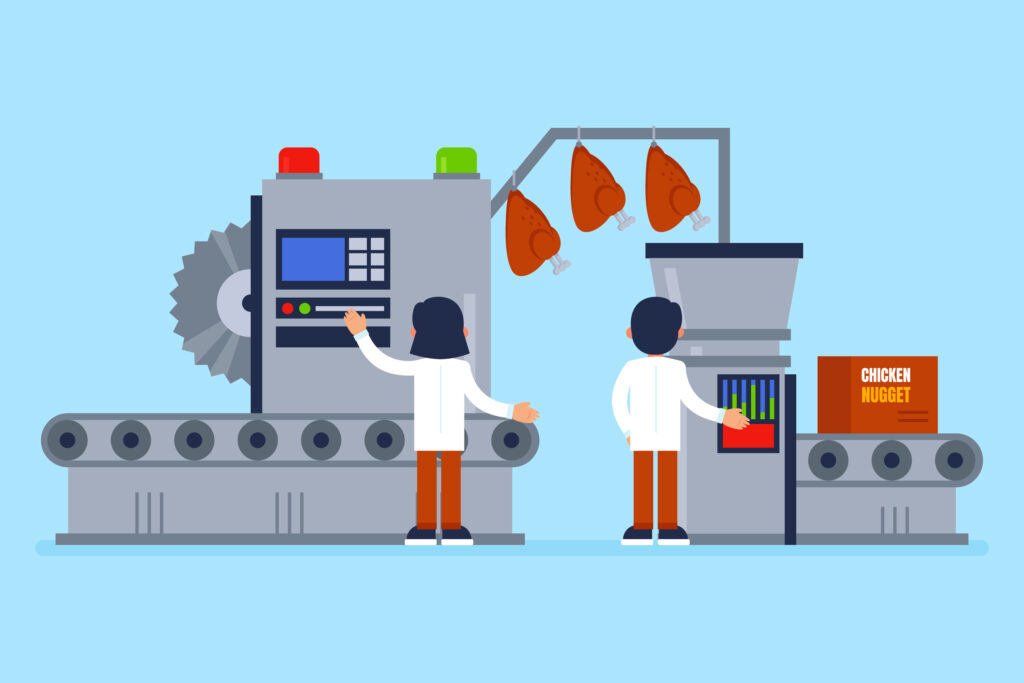
How MES Software Transforms Batch Production
Batch production in process industries demands precision, consistency, and efficiency. How MES software transforms batch production is by optimizing workflows, ensuring quality, and enhancing traceability. Whether in pharmaceuticals, food & beverage, or chemicals, MES helps streamline operations and drive better production outcomes. Here’s how it optimizes batch production in process industries:
1. Real-Time Batch Monitoring
Knowing exactly where each batch is in the process is crucial. MES software provides real-time tracking, reducing the risk of delays and errors.
🔹 Live dashboards display batch status.
🔹 Alerts notify operators about deviations.
🔹 Data logs ensure complete traceability.
2. Recipe and Formula Management
Consistency is key in batch production. MES solutions ensure accurate execution of recipes by automating ingredient measurements and process sequences.
🔹 Standardized recipes reduce human errors.
🔹 Automated adjustments maintain quality across batches.
🔹 Historical data helps refine formulations over time.
3. Improved Quality Control
Every batch must meet strict quality standards. MES software integrates quality checks directly into production.
🔹 Automated sampling and inspections prevent defects.
🔹 Non-conforming batches are flagged instantly.
🔹 Real-time analytics improve product consistency.
4. Better Compliance and Traceability
Industries like pharmaceuticals and food & beverage require detailed batch records. MES solutions make compliance easier.
🔹 Digital logs track every batch step.
🔹 Audit trails ensure regulatory adherence.
🔹 Faster recall management with detailed production data.
5. Enhanced Resource Utilization
Optimizing material use and equipment efficiency reduces costs. MES software ensures production runs smoothly with minimal waste.
🔹 Smart scheduling minimizes idle time.
🔹 Inventory integration prevents raw material shortages.
🔹 Predictive maintenance avoids unexpected downtime.
Real-World Example: MES in Food Manufacturing
A leading dairy company struggled with inconsistent batch quality and high ingredient waste. They implemented an MES solution to automate recipe execution, track ingredient usage, and monitor quality in real time. The results?
✅ 20% reduction in material waste.
✅ 30% faster batch cycle times.
✅ 100% compliance with food safety regulations.
With MES software, they improved efficiency while maintaining top-quality products.
Key Benefits of MES in Batch Production
So, what’s the big takeaway? MES solutions bring several game-changing benefits:
✔ Increased Efficiency – Faster production cycles with minimal manual intervention.
✔ Better Quality – Consistent product quality across all batches.
✔ Cost Savings – Reduced material wastage and optimized energy usage.
✔ Regulatory Compliance – Automated documentation for easy audits.
✔ Data-Driven Decisions – Real-time insights to improve production strategies.
Getting Started with MES for Your Process Industry
Thinking about integrating MES software? Here’s how to begin:
✅ Assess Your Needs – Identify pain points in batch production.
✅ Choose the Right Solution – Pick an MES solution tailored to your industry.
✅ Train Your Team – Ensure operators understand new digital workflows.
✅ Monitor and Optimize – Continuously refine processes using MES analytics.
Final Thoughts
Batch production in process industries demands precision, consistency, and efficiency. MES software makes it easier to manage recipes, track batches, and maintain quality. Whether you’re in pharmaceuticals, chemicals, or food production, an MES solution can help you streamline operations and stay competitive.
🚀 Ready to optimize batch production? Start exploring MES solutions today!


Comments are closed